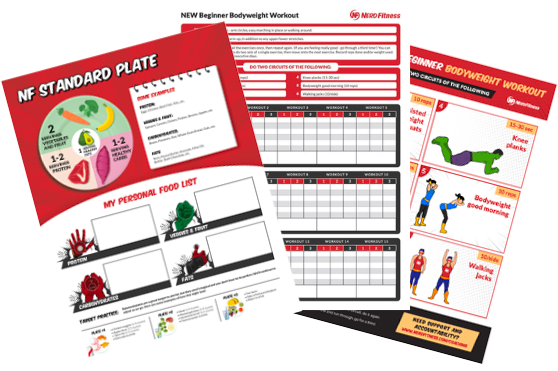
You’re here because you want to learn about the Tabata protocol!
Lucky for you, we’re experts in teaching folks High-Intensity Interval Training like Tabata. Just ask our coaching clients:
Here’s what we’ll cover so you can start doing a Tabata workout:
- What is Tabata training?
- How does Tabata training work?
- What is a Tabata workout? (How to do Tabata sprints)
- Tabata timer recommendations.
- Mistakes to avoid when doing Tabata training.
- Will Tabata help me lose weight?
- Getting started with a Tabata workout plan.
It’s a lot to cover. And we only have something like four minutes to do it![1]
Let’s get started.
What is Tabata Training?

“Tabata” comes from Dr. Izumi Tabata, a former researcher at Japan’s National Institute of Fitness and Sports in Kanoya. Tabata developed an extreme form of High Intensity Interval Training (HIIT), which can already be pretty extreme.
Let’s back up there a minute, because you may be asking, “What is HIIT, Steve-a-rino”?
HIIT is a form of interval training. It’s a sequence of intense exercise followed by a short pause to rest, then back to intense exercise, and then back to rest. Annnnnnd repeat!
In other words, doing sprints…
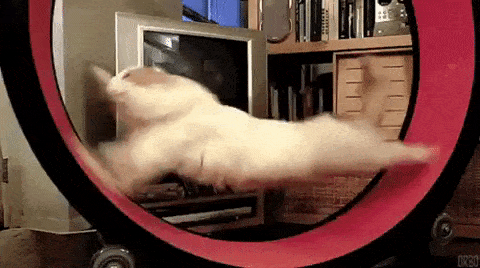
Then walking…
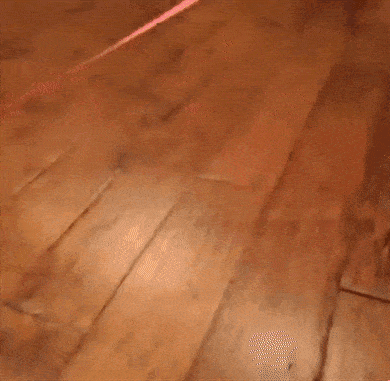
Then back to sprints.
Alternating back and forth for roughly ten minutes. This would be an example of High Intensity Interval Training.
Dr. Tabata wanted to see just how short, and how intense, the interval training could be to observe measurable gains.
He got an answer:
Four minutes.[2]
The doctor designed a training where participants gave their maximum effort for 20 seconds, then 10 seconds for rest. They repeated this cycle for four minutes – in other words, eight 30-second cycles. That in a nutshell is a Tabata exercise.
Brutal, but potentially very effective for improving cardiovascular health and endurance.
Let’s dig into the study itself and the results!
HOW Does Tabata Training Work?
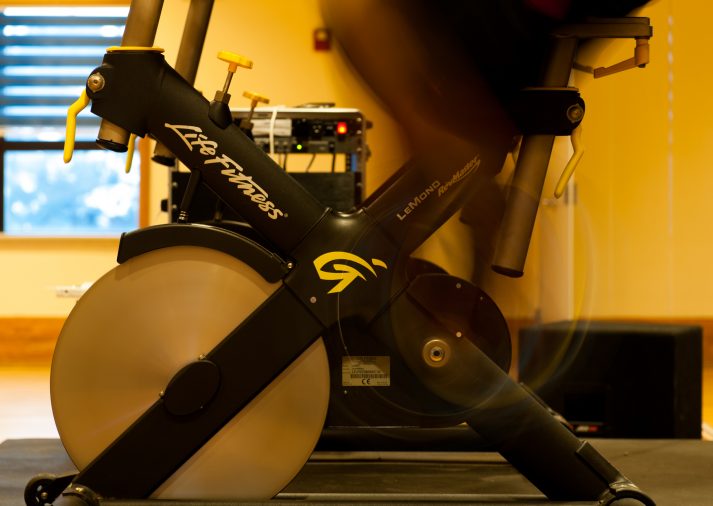
Dr. Tabata tested his routine on two groups of athletes[3]. Five days a week, for six weeks, they were prescribed the following routines:
- For all five days, Group 1 pedaled a stationary bike for an hour at 70% capacity.
- For the first four days, Group 2 did eight intervals on the bike using the Tabata principle (sprint for 20 seconds, rest for 10, repeat). On the last and fifth day, they did a 30 minute “moderate” ride, followed by an extra two minutes of Tabata sprints.
How’d the results go?
Group 1 strictly increased their maximum aerobic capacity by 9.5% (how long you can run). However, the second group crushed it.
Group 2 not only increased their aerobic capacity by 14%, but they also increased their anaerobic capacity (how long you can run at maximum effort) by 28%!
Said another way: after the experiment, the Tabata training group increased their ability to bike for longer, and harder, compared to the group who trained with regular cardio.
The amazing thing to consider is the time dedicated:
- Group 1 worked out for 300 minutes a week.
- Group 2 worked out for only 88 minutes (they did a 10 minute warm up prior to their intervals, which we’ll talk about shortly).
More results in less time? As a lazy nerd who also wants to look good, sign me up!
The experiment left Dr. Tabata with the belief that six to eight very hard 20-second intervals with 10-second rest periods may be one of the best possible training protocols when it comes to efficiency.
“Never train for more than 4 minutes, great! Back to the couch for me. Thanks Steve!”
Hold your horses there, partner.
For starters, what are you even doing with horses while reading this article?
Secondly, I need to mention this: Tabata developed and tested his protocol on Olympic athletes (skaters, specifically) with one specific type of exercise.
These folks are some of the top of the top when it comes to fitness. And the Tabata workout left them physically exhausted.

So, what if you’re not an Olympic athlete?
Can you still receive a lot of benefits from training in this style?
It’s worth giving it a chance.
The big point I want to make: “intense exercise” is purely subjective.
“Sprint” doesn’t have to mean ALL OUT SPRINT. If you are very out of shape and training for your first 5K, then your “sprint for 20 seconds” might be a VERY light jog.
And that’s perfectly okay.
The goal is to push yourself outside of your comfort zone for 20 seconds at a time, before resting for 10 seconds, and repeating. Everybody’s “comfort zone” is different. Which means everybody can challenge themselves.
We’ll touch on this again later.
For now, let’s chat about some practical ways to start Tabata training.
What is a Tabata Workout? (How to do Tabata Sprints)

You’ve got a lot of options for a Tabata workout, but you can’t do any Tabata training if you get hurt or end up collapsed on the ground, right!?
So no matter which one you pick, please always start with a 5-10 minute warm-up!

You want your heart rate up and muscles loose so you don’t hurt yourself. Tabata himself made sure his athletes warmed up before going all out.
And then after you’re done, cool down! Your heart will be racing and your muscles will be twitching. You need to bring them back to down to normal levels. So go for a slow walk. Do some stretches or some yoga. Bust out that foam roller.
Deal? Deal.
Here are my favorite types of Tabata training:
- Sprints. Simple enough. Sprint for 20 seconds, rest for 10. Sprint for 20, rest for 10. This is tough to do without a partner yelling out your times. Personally, I run with a stopwatch with big numbers and glance at it around 20 seconds to make sure I stay on time.
- Elliptical Machine. Less wear and tear on your joints, but tougher to go “all-out” because it can only go so fast. Crank the resistance all the way up if you can handle it.
- Rowing Machine. This was the exercise of choice to shred pounds for Gerard Butler (King Leonidas in 300)
- Stationary Bike. It’s a bike. Pedal like hell. This is what Tabata used with his athletes.
- Jump Rope. Grab a jump rope, and go as quickly as possible following the Tabata protocol. Guaranteed to leave you jumping up and down like a little kid in a puddle…of sweat. Nasty. Effective.
Cardio workouts are generally the recommended type of exercise for Tabata. In theory, it’s pretty easy to rev up your effort to the max when doing sprints or biking.
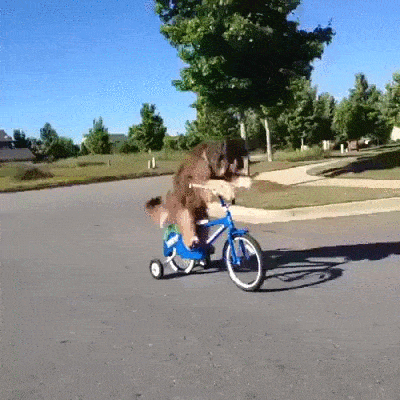
That’s why they are popular for Tabata.
However, I want to note that all sorts of other exercises can offer a full-body workout when doing Tabata.
Consider these for Advanced Tabata Workouts, especially if you’re looking to build more than just endurance or cardiovascular health:
- Squat Thrusters. Start by standing tall. You then want to squat down and explode your legs back into a plank position (top of a push-up). Then bring your legs forward to a squat position and jump up! Like so:
- Push-Ups. Make sure you do your push-ups correctly! It pains me to see so many people with improper form at the gym. Think of your body as one giant straight line. Also, if you need to start on your knees, that’s okely-dokely. A knee push-up is WAY better than no push-up. Want a video to get started? Of course you do:
- Burpees. A burpee is kind of like a squat thruster, but with a push-up included! Extra credit! Start just like you would with a squat thruster, but when you’re at the top of your push-up, go all the way down and back up. When your back at the top, bring your legs up to a squat and then jump. Like this:
- Pull-Ups. (Read our guide if you can’t do a pull-up yet). My favorite exercise. Start with your hands shoulder width apart on your chosen bar. As you lift, focus on pinching your shoulder blades down and back. Once at the top, lower yourself slowly. We’ll walk you through it here:
For all the above, try and follow the Tabata protocol the best you can. For 20 seconds, do as many burpees as possible while keeping perfect form. Then give yourself 10 seconds to catch your breath before jumping into more burpees. Follow the same cadence for any of the more advanced moves.
Hang in there.
Four minutes will go quick! Here’s Everclear’s “I Will Buy You a New Life,” which is almost exactly four minutes long, and is the most obscure reason I could work this wonderful band from my youth into this article:
When you’re done with your Tabata routine, record your results (once your hands stop shaking), and next time around – try to beat your score for total reps!
In a moment we’ll chat about some resources so you don’t have to count in your head. Or coordinate your workout to pop songs.
First I quickly want to mention that our coaches build HIIT workouts, like Tabata, for busy people just like you. Whether you only have time to workout at home or if you want to make the most of your gym visit, our coaches can help!
Tabata Timer Recommendations

A timer is useful for doing Tabata – especially if you’re running and aren’t able to look at a screen to see the time remaining for each segment.
As previously mentioned, you can rock an old school stopwatch like a boss, or you can get a bit more technologically advanced.
This is the dawning of the age of aquarius apps, so download one of the following and use it to track your Tabata workouts:
- Runtastic. Don’t let the name fool you, this free app is for more than just running. You can customize for many different interval workouts, including Tabata. And the interface looks slick.
- Seconds. It’s free and customizable to Tabata and other forms of HIIT. It can also integrate with your music, which is pretty sweet.
- Tabata Stopwatch Pro. This app is specifically designed for Tabata. And it shows. The display can be seen from far away, useful for burpees or squat thrusters. Also, it’s free.
- Tabata Timer for HIIT. This app is one of the best reviewed on the market. Which is awesome, considering it too is free. It can also track your weight, BMI and daily workout history. Plus, the trumpet sound effect found in the app is hilarious.
- TABATACH. I’ll be honest, I just really like the name of this one. Makes me giggle.
We’ve gone over some tools to help you during a Tabata workout. I want to make an important point about Tabata training before we get too ahead of ourselves.
Mistakes to Avoid When Doing Tabata Training

You might hear that it’s actually extremely difficult to do true Tabata training. Tabata ran his experiment with Olympic athletes, who were able to reach a crazy amount of oxygen utilization, 170% VO2max.
For a normal person to get anywhere close would probably make them vomit from extreme exertion.
Who cares!?
I don’t care if you’re doing ugly push-ups and you can’t run.

You’re trying, right!? And you’re doing the work.
Worry about getting started first. Deal with getting better next.
Studies have replicated Tabata’s results with subjects who were “recreationally active” and did exercises such as burpees and squat thrusters[4]. So claims of not doing “true Tabata” miss the point.
Tabata himself has stated as such by explaining it’s the effort of going to one’s physical max, which is critical for the benefits of Tabata training[5]. Don’t worry about VO2max. If you try a Tabata program, the importance is going hard for YOU. We’re not going to worry about VO2max – we’re gonna worry about challenging ourselves.
This means if you need to do “Tabata” in a way that is just walking faster vs walking slower, it’s a start!
We all start somewhere, and it begins with taking the first step.
Still overwhelmed and need help on taking your first step?
Don’t beat yourself up, we can help!
One of the reasons we created our 1-on-1 coaching program is to make exercise less scary for busy people like you. We can help you get started with interval training, strength training, or help you find something else without a stopwatch that might be a better fit for you.
Will Tabata help me lose weight?

Maybe!
Exercise is important for cardiovascular health and overall wellness. However, to ALSO lose weight, you need to focus on what you eat.
As we say in our Rules of the Rebellion, “you can’t outrun your fork.”
That means your nutrition is 80-90% of the battle in the war for weight loss. If you get most of your food via drive-thru, you don’t like veggies, or you’re just not quite sure how to fix your nutrition, I hear ya.
Check out our Beginner’s Guide to Healthy Eating for guidance on how to dial in your meal planning. We also have How to Lose Weight (Without Dieting) that might be helpful to you.

The other 10-20% of the battle for weight loss? It’s exercise. So if you’re already eating well, a Tabata or HIIT style workout would be a great tool. It’s not hard to find studies of HIIT helping with fat loss[6].
It’s one of the reasons interval training has become a staple in the fitness community.
Another beauty of Tabata: it only takes 4ish minutes, and ANYBODY can find 4 minutes in the day to get a quick workout in.
The REAL benefits of Tabata training comes from the fact that training for 4 minutes can:
- Help you keep momentum. If you’re trying to stay consistent with your workouts during a hectic week, 4 minutes is better than no minutes!
- Assist with thinking “I am exercising to be healthy, so I need to continue eating well.” I personally eat better on days when I exercise because I know how important nutrition is for overall health.
- Be done anytime, anywhere. It’s snowing out, your kid is sick, and you don’t have any gym equipment? Great – you still have the time (4 minutes), space (anywhere), and the equipment (nothing) to pick an exercise above and go for 4 minutes.
If the idea of Tabata or HIIT freaks you out and you’re afraid you’ll hurt yourself, check out our Beginner Bodyweight Workout for a great alternative to begin.
If you are looking to develop more endurance and cardiovascular health, check out our Couch to 5K write-up and start there.
The most important thing: get moving, and course correct along the way. The best workout program is the workout you actually stick with. Tabata said as much himself with “Any exercise is beneficial.” That’s why he encouraged readers on Reddit to train in a way that is sustainable[7].
Check out 40 Ways to Exercise Without Realizing It for fun activities to keep your body moving!
Getting Started with a Tabata Workout Plan

HIIT and Tabata can really shock your body. Which can be good. After all, the only way to grow and get better is to push yourself outside of your normal comfort zone.
Pushing yourself to run faster, or to do one extra push-up, or to lift one more pound…that’s where the real change starts to happen!
YOUR MISSION: Try a simple and safe Tabata protocol during your next workout.
- Go to a park (or hop on a bike at the gym) and practice varying your speed by walking, running, jogging, etc, to get warmed up.
- Then, after you’ve gotten comfortable, bust out your timer. Start doing a HIIT protocol (alternating periods of fast and slow), or go full Tabata for 4 minutes if you’re feeling adventurous.
- Feel free to stop if you feel yourself pushing too far, or scale the intensity way back. Push yourself, but leave some in the tank to make sure you can still walk tomorrow!
The most important thing is that you try a Tabata workout! You can always course-correct later.
Want a little more help getting going? A little nudge out of the door?
You seem like a nice person, so I’ll share with you our best suggestions for next steps:
1) If you want step-by-step guidance, a custom HIIT program that levels up as you get stronger, and a coach to keep you accountable, check out our killer 1-on-1 coaching program:
2) Good at following instructions? Check out our self-paced online course, the Nerd Fitness Academy.
The Academy has 20+ workouts for both bodyweight or weight training, a benchmark test to determine your starting workout, HD demonstrations of every movement, boss battles, meal plans, a questing system, and a supportive community.
3) Join the Rebellion! We need good people like you in our community, the Nerd Fitness Rebellion.
Sign up in the box below to enlist and get our guide, Strength Training 101: Everything You Need to Know. It’ll help you start incorporating a Tabata workout into your training.
Alright, enough from me. Now it’s your turn:
Do you do Tabata training?
Sprinting or some other form of a Tabata workout?
Any other tips or recommendations for HIIT?
Let us know in the comments!
On my mark…
Get set…
Go!
-Steve
PS:
Make sure you check out the rest of our content on Interval Training:
###
Photo Source: The Rebel, dog, stationary bike, Leia on Hoth, Clockwork, spin cycle, Hold on to your hats, running.
GIF Source: Cat running, Cat walk, Dog on Bike, Patrick, Fitness canines.



